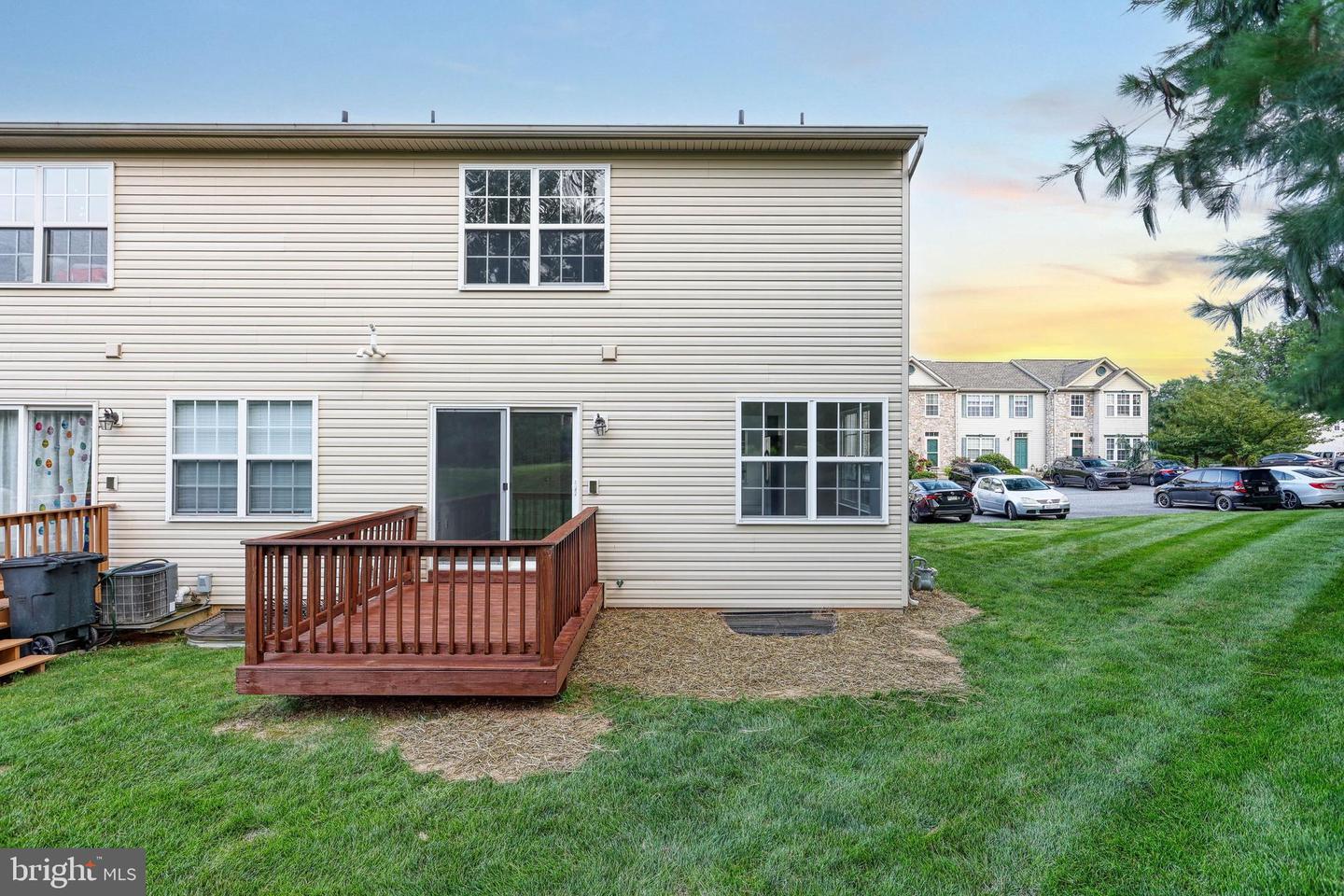
A rental property management company helps property investors by running their daily operations. This includes marketing vacancies in the property, screening applicants, collecting rent, handling maintenance requests, and ensuring that tenants are happy and satisfied with their stay. In a sense, a rental property management company is there to protect and further build the initial investment of the purchase of the property. Depending on the desired role a property owner wants to take, a rental property management company essentially runs the entire business. Tenants will use their online portals to pay rent, submit maintenance requests, and for most forms of communication.
Creating A Lease
A rental property management company usually creates its applications and lease terms, which are approved by the property owner. This is because a rental property management company understands both local and state law when it comes to ensuring that the lease is clear, legal, and has the best interests in mind of all parties involved. The lease typically includes what rental amount is expected each month, the length of the lease, and any requirements or rules that could terminate the lease, such as a clear understanding of pet policies or how many individuals can be in the unit.
Adding Renter’s Insurance
An important aspect a rental property management company needs to consider is whether or not they should require renter’s insurance. This is an optional decision that can be made by either the property owner or the rental property management company. Renter’s insurance isn’t just to help renters save money and protect their property, it also saves money and stress for the property owner and the rental property management company. To put it simply, it is a win for everyone. Residents get coverage, and the company and owner are protected from having to cover repairs due to damages caused by the renter. This also protects from having to replace the damaged property that renters can’t afford.
Basics of Renter’s Insurance
A rental property management company should seriously consider requiring renter’s insurance for all tenants. This helps to protect all parties involved. This type of coverage can even protect a resident visitor in certain circumstances. In many instances, renters may not be aware of what renters’ insurance is and why it can help them. A rental property management company must take the time to learn this information as well. Different types of renter’s insurance covering tenants are available. The most common policies are for personal property, liability, and relocation.
Personal Property Coverage
Personal property coverage helps to protect against theft or damage to personal possessions within a renter’s unit. This is vital coverage to have for both tenants and a rental property management company. Without coverage, a tenant may seek a replacement from the rental property management company. This can lead to stressful, time-consuming communications and possible litigation depending on the circumstances involved in the property damage or theft. Depending on the situation, the renter’s insurance personal property coverage can also cover another person’s property that is damaged or stolen within the apartment.
Personal property coverage can protect against theft. Theft can happen any time, anywhere, even in locations that are considered safe. Even with precautions in place, such as changing door locks with each new tenant, or using a security camera system, you can’t always protect against everything. Property damage is another area where even with proper maintenance, and building inspections, things can go wrong. This could be a power surge that causes a microwave to short out or a plumbing overflow that results in damage to surrounding personal property. Having renter’s insurance with personal property coverage can protect both residents and the rental property management company.
Typical damages covered by personal property coverage include theft, leaks, smoke, vandalism, snow, freezing, or falling objects. Depending on the property’s location, an individual may also be covered for earthquakes or a sewer backup. It is helpful to understand that many renter insurance providers do not cover flood damages.
Liability Insurance
Liability insurance is designed to help cover any unintentional injuries or harm done to someone in or near a resident’s unit. It is important to note that this is for unintentional injuries. While a rental property management company would hope an individual would never purposely hurt themselves on the property, it is better to be safe than sorry. This provides coverage if a tenant were to trip on the stairs or fall in the parking lot. Having this protection is great for both tenants and the rental property management company. Tenants have peace of mind that their injuries will be covered, and property owners and management companies won’t have to worry about having to pay for those injuries themselves.
Relocation
Another benefit of requiring renter’s insurance as a rental property management company is coverage for any necessary relocations. Renter’s insurance can cover cost-of-living expenses if the resident needs to move out of their unit for some time. This could be due to damage caused by smoke, fire, or water damage. Having the tenant leave the property allows the rental property management company to properly clean and make repairs to the unit. Without a renter’s insurance, a tenant may choose to simply leave the property permanently, breaking their lease and leaving the rental property management company with an unexpected vacancy that can take some time to fill. However, with renter’s insurance, a tenant is more likely to return once the unit is restored since their temporary move was covered.
Cost of Renter’s Insurance
As a rental property management company, it is important to understand the costs involved when requiring renter’s insurance for your tenants. The cost will vary depending on several different factors. One factor is the type of coverage you or your resident chooses. That is why it is helpful to shop around and explore different options in the area. Cost can also vary on the type of units, such as a single-family home, duplex, or apartment complex. The size of the building can also be a factor. If you allow pets on the premise, this could increase the rate of renter’s insurance depending on the types of pets you allow. Another important factor will be the tenant’s credit score.
Regardless of all the different factors, renter’s insurance is still relatively inexpensive, especially when considering all it can protect. The average policy that includes personal property coverage, liability, and relocation can cost between $15 to $20 a month.
What to Consider When Requiring Renter’s Insurance
A rental property management company has a few different aspects to consider when choosing to require renter’s insurance. One important factor to consider is having the requirement clear within the lease. This ensures that the requirement is compliant with state laws. Some states do not permit requiring renter’s insurance when already within a lease. Having it in the lease upfront shows your tenants that you are serious about them having the coverage, and that is it a necessary aspect of gaining approval to move in.
Know the Coverage Needed
Before implementing a new renter’s insurance requirement, it is beneficial to know your area and your residents to determine the best type of coverage. You’ll want to consider the area of the property, whether it be in a safer area, or in an area that could require more coverage. You’ll also want to consider the types of residents that typically reside on your property. Coverage can be different when it comes to individuals or families. These variables can all contribute to the type of coverage needed and how much it will cost.
Shop Around
It is beneficial for a rental property management company to shop around for the right renter’s insurance for their property. This includes exploring national brands as well as smaller companies in the area. You want to get a variety of quotes to ensure you are choosing the best option for your tenants.
Make It Easy
The easier it is for the tenants to apply they will be more receptive to the new requirement. This can be as simple as providing an option to sign up through property management software as part of the onboarding process. Residents will appreciate the convenience, and it provides a clear record of which tenants are enrolled. It can also be helpful to educate your tenants on what renter’s insurance is and what it can do for them. This could be a virtual meeting or workshop to learn more. If a rental property management company chooses a specific insurance company with which to work, they can request a representative from that company to come to speak to the tenants. This provides an opportunity to highlight the benefits of having this coverage, the cost, what it covers, and answer any questions residents may have.
Requiring Renter’s Insurance
Requiring renter’s insurance is a good idea for a rental property management company. This shows that you care about your tenant’s possessions and their well-being. This also helps to protect the rental property management company and the property investor from unnecessary charges for damages, theft, or injury that isn’t a result of the property itself. Contact Home365 to learn more.



